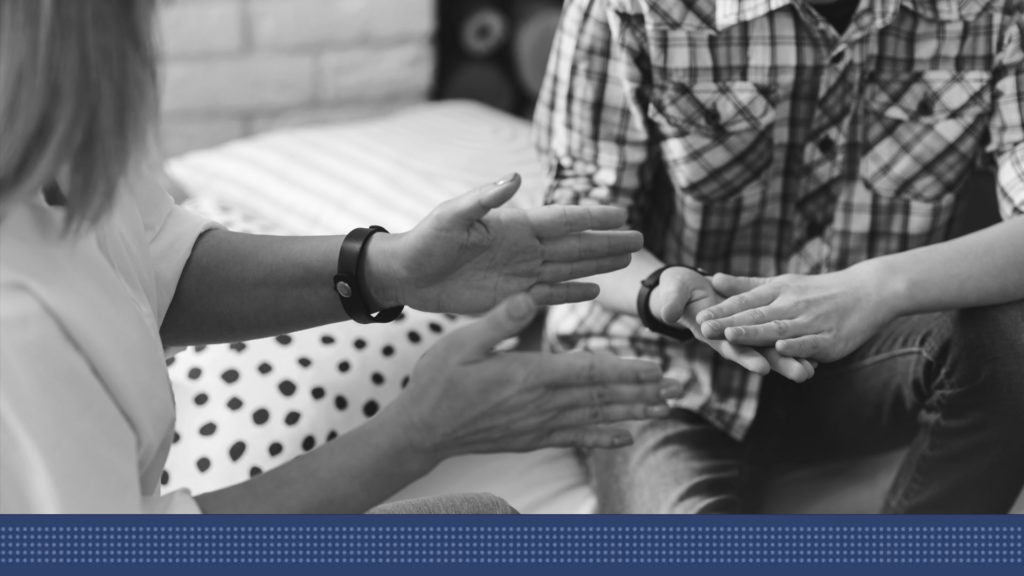The new school year is here and your students are facing another unusual year. Whether they are going in person or attending virtually, they are most likely facing a myriad of emotions. Excitement, nervousness, anxiety. The schools are doing everything possible to provide a safe learning experience but there are always unknowns. This can create mental health hurdles for your school age kids or teens. There are ways to help though. Here are a few tips on making the transition back to school a better experience.
Keep Calm
Your kids look to you for guidance on how to feel and act. If you’re facing the new school year calm and collected, they’re going to notice. The more you can project this attitude, the more your students will engrain it and feel ready to head back.
Be Open
Be calm but also be open about what’s going on. If you’re overwhelmed, talk through your feelings with them and explain how you’re working on handling your emotions productively. This will show them that it’s okay to not always feel okay and that there are techniques to improve your emotions. Talk to your kids about how they are feeling. Make your questions open ended and don’t imply that they should be feeling certain emotions.
Example:
Open Ended: How are you feeling about heading back to school?
Close Ended: Are you nervous about heading back to school?
Validate
COVID-19 is a serious disease and your kids have valid reasons for feeling anxious about returning to the classroom. Let them talk out their fears and feelings. Make them feel heard but also reassure them that they can handle everything that happens and you’re always there for support.
Provide Answers
If you can’t answer your kid’s questions, start making a list. Then, do a little research and provide the answers at a later time. This will show them you find their concerns valid and are there to help navigate tough topics.
Stay Positive
While there are lots of unknowns going into the new school year, focus on the positive. Ask your kids what they’re looking forward to about school. Point out all the fun things about being back with friends and getting to learn in person.
Reassure
This may be the first time your kids have left home or the first time in a long time. They may have separation anxiety or be worried about leaving home. Reassure them that although you won’t be there that you’d never let them go somewhere you didn’t think was safe.
Have Patience
If your kids are returning to in-person school after more than a year, it may take a bit to adjust to being surrounded by strangers and classrooms. Encourage them but realize the transition may take more than a few days.
Look for Signs of Anxiety or Depression
Even if you’re doing all these things, it’s a good idea to keep an eye out for signs of anxiety or depression. It may be something you can work through together or it may be good to talk to a mental health professional.
The CDC states these are some signs your child is suffering from anxiety:
- Afraid of being separated from you
- Developing phobias
- Frightened of social situations outside of the home
- Worried about the future
- Starts having panic attacks
- Frequent stomach aches or headaches
Signs of depression
- Feeling sad or down
- Not interested in activities they used to enjoy
- Large change in sleeping or eating patterns
- Lose concentration quickly
- Energy level wanes
- Showing low self worth
- Harming themselves intentionally
If you’ve spotted a few signs that your child is dealing with anxiety, here are a few practices you can do together.
The 5 Senses Exercise
Sit with them and go over the following.
- Say 5 things you can see.
- Say 4 things you can feel/touch.
- Say 3 things you can hear.
- Say 2 things you can smell.
- Say 1 thing you can taste.
Mindfulness Exercise
https://www.youtube.com/watch?v=70j3xyu7OGw
Small Object Exercise
If your kid is having apprehension about leaving home, help them pick out a small object from home. They can take this with them and hold it when they’re feeling anxious. This will help them feel a bit of home anywhere they go but not distract from school and friends.
Practice Self Regulation
https://www.youtube.com/watch?v=j0YDE8_jsHk&t=115s
Practice Gratitude
Find one thing you are grateful for every day and share this with a loved one. Research shows this benefits mental health and cultivates happiness. Try asking your child at the dinner table, “What is one thing you are grateful for today?” Make sure you answer the question too.
Have Family Meals
Life as a parent or child is chaotic, especially during these challenging times. One simple yet powerful practice to combat this is to have a family meal together multiple times a week. Put all digital distractions away and just be together. The evidence around regular family meals is profound. The benefits are character formation, reduction in symptoms of medical disorders like asthma, and mental health improvement. Don’t be afraid to say no to a sport or activity for an individual for the betterment of the family.
Whether you get to one of these tips or all of them, Dr. Glen Rebman, Psychiatrist and Medical Director of Behavioral Health at Fairview Range says, “Be gentle with yourself and know that just enough can be good enough. During these times, it’s ok to not be ok. While the challenges can feel endless as a parent, remember we are in it together as a community with support right around the corner. By practicing these tips, you are role modeling to your children how to stay resilient amidst adversity.”
Talk to Someone Today
If you’re interested in learning more about anxiety coping methods or having your kid talk to a mental health professional, our team can help. Schedule an appointment today by visiting your MyChart account or calling 218-362-6937.


